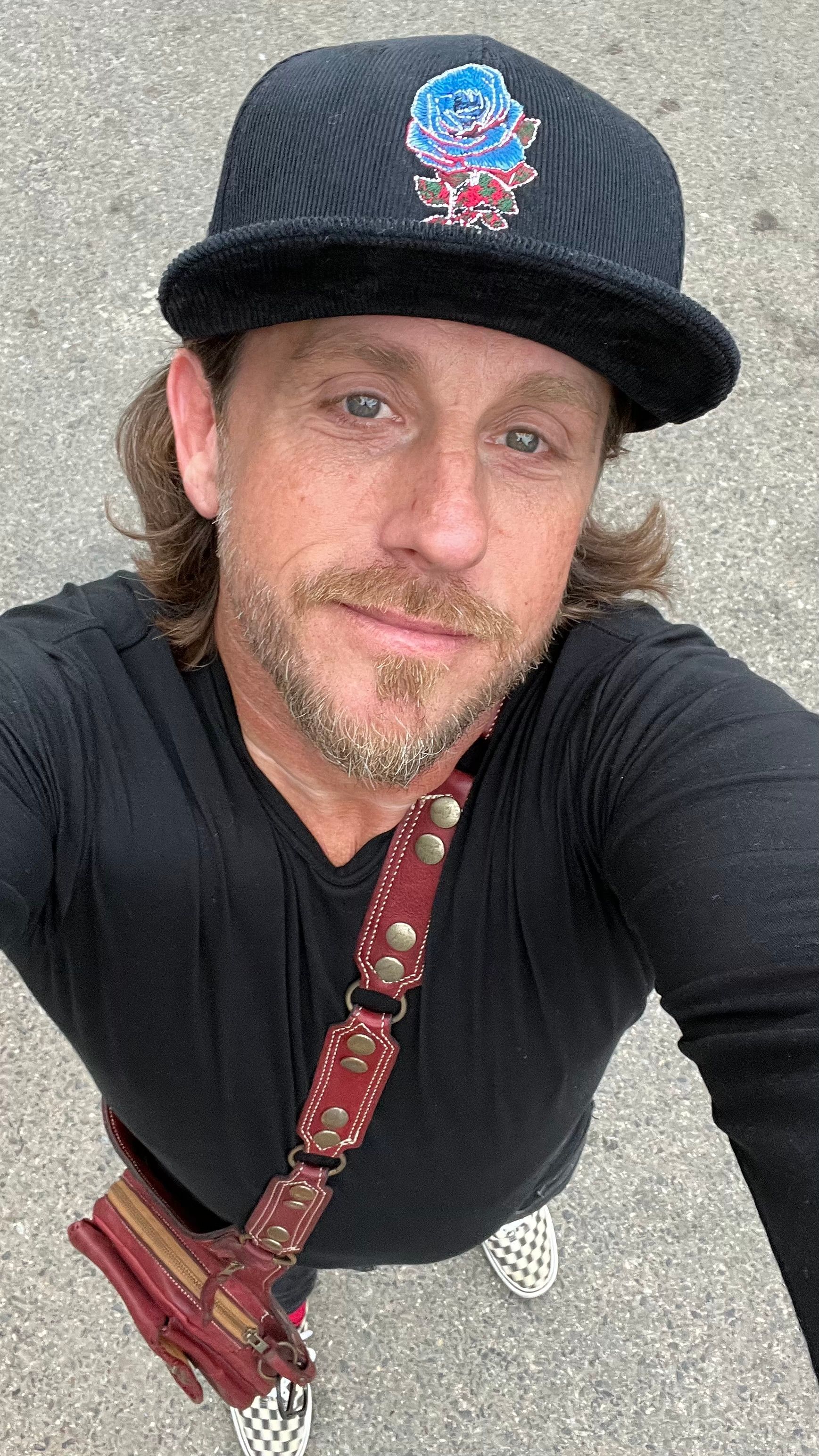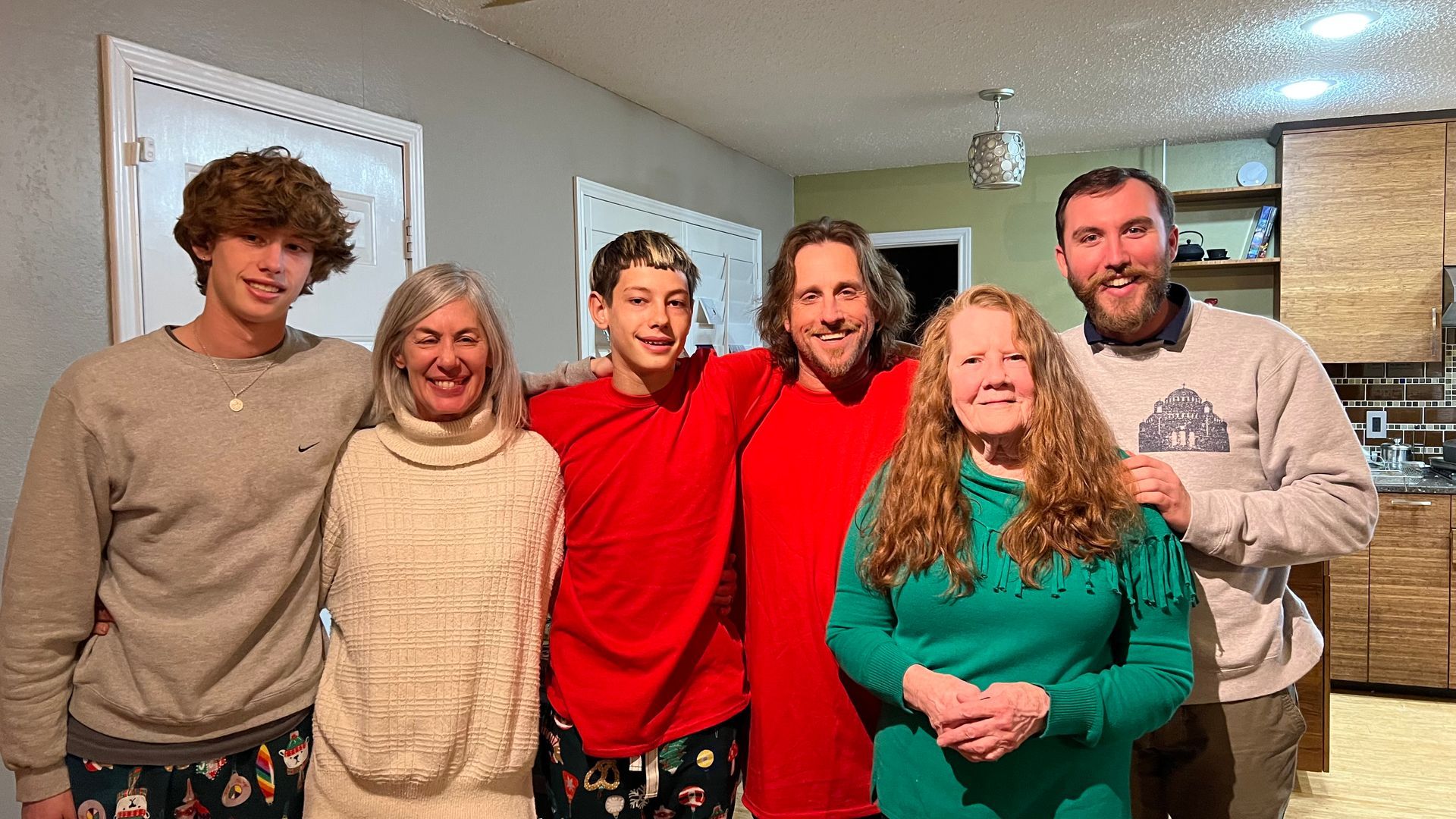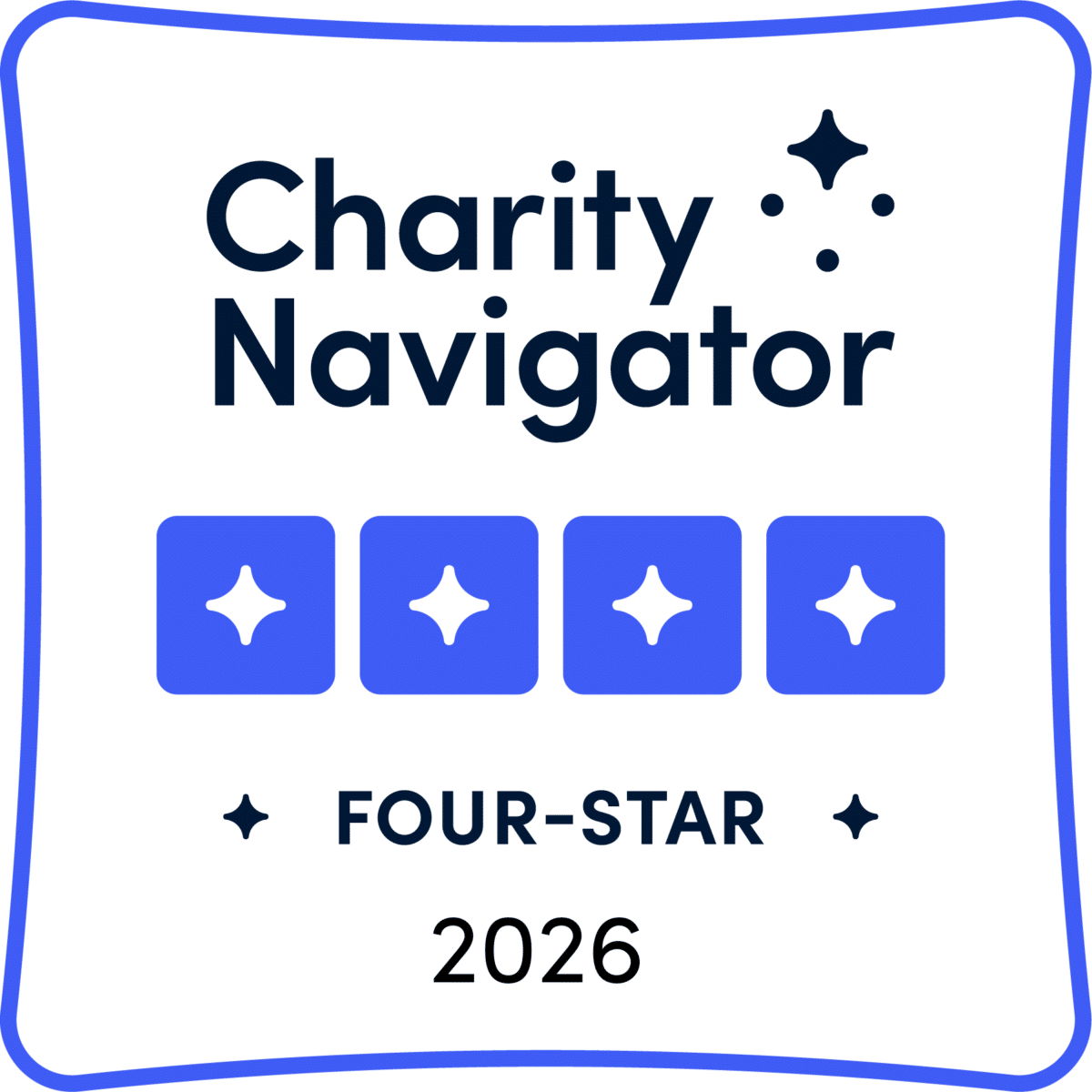Bentley Hatchett Shares His Reentry Journey After Serving Time For Cannabis

Bentley joined LPP's Director of Impact, Mikelina Belaineh, via Zoom for an hour-long interview. Bentley shared about how he became incarcerated for cannabis and the impact it has had on his life. The content of this article is informed by Bentley’s words, but they are not verbatim. Parts of this interview have been edited for length and clarity, and have been reviewed and approved by Bentley.
Tell me your story of cannabis criminalization, how did you get to be here with me today doing this interview?
I grew up in Austin, Texas. When I was about to go into kindergarten my mother started talking about wanting to go back to college to finish up her degree. My dad had an old-school mindset that the wife should stay at home, and he said he wouldn’t allow it. My mother wouldn’t stand for that, so my parents ended up getting divorced in 1978. My dad made it very difficult for my mom financially, and she ended up only with the bare minimum of what she needed to take care of us. She provided for us, but there was never enough to fully address our family’s needs. My father’s absence took a real toll on me, he became just a voice on the other side of the phone. It was harsh, all I really wanted was my dad there, and then I’m watching my mother struggle trying to take care of us on her own. Pretty early on, I started finding ways to help. I couldn’t stand to be a burden to my mother.
Eventually, my older brother started running with people that were selling cannabis and other drugs. I got looped in and started helping my brother with the business. By 15, I was making insane money, especially for a teenager. This is back in the late eighties. It felt great to be able to contribute to the family. I've never done what I've done to be the man, I only sold cannabis to help my family. Come 1989, my brother encountered some trouble, and he ended up getting busted and sentenced to 14 years. That was my first taste of what incarceration does to a family. My mother and I were devastated, it's still painful for me to remember. For the first 2 weeks after he got sentenced, I don't think my mother, or I left our beds. Both of my male role models had been ripped from my life. I fell into a darkness, struggling mentally and emotionally. I started doing cocaine and other hard drugs, I was in bad shape. It got to the point where my friends had to intervene to get me cut off. I was still going to school, functioning, but just barely.
Fast forward, I go to my first Grateful Dead show and get introduced to psychedelics. Psychedelics and cannabis combined ended up having a very profound effect on my life. Once introduced, I was able to use LSD, mushrooms, and cannabis to facilitate deep introspection and healing. I came to understand how I had been using hard drugs to avoid and escape my emotional pain. Psychedelics reframed my afflictions and gave me space to open up and dive into my experience. As a junior in college, I decided to leave school, move out to California, and join the emerging Psychedelics movement. My goal was always to be a part of serving the greater good.
In the late nineties, it was still in the early stages of cannabis in California. The weed wasn’t great, so a lot of people were getting their product from Canada. Me and my friends figured we could probably grow some great weed outdoors in California. The first time I got arrested, I got in trouble because of my ties to the psychedelic community. I was charged because my name had been thrown around. I had introduced one person to another person, I didn’t sell anything, and I didn’t get paid for anything.
The DEA lied to the prosecutor about my involvement in the case, and the government withheld evidence that would expose the truth. The judge gave the prosecution one week to get all of the missing discovery to my lawyer. Of course by the evening before the 7th day, when we were supposed to return to court, they still had not complied with the Judge's orders. The prosecutor calls my lawyer that night and says that if took a plea deal she would drop my conspiracy charge (which held a sentence of 6-9 years) to a misprision of a felony charge which would end up having me 1 year incarcerated and 1-year paper. So of course I took the deal, even though the underlying charge was based on lies and government misconduct.
So, I served my time, and when I got out. I was like, okay. I'm never going to do anything that's going to lead me back to prison. Once I got off paper, I moved back out to California and started doing the medical thing there. There weren’t many people in the medical game at the time, and I had a lot of experience under my belt—things were going well for me. A childhood friend of mine was living in New York and asked me and my partners to source cannabis for them. I was naïve and agreed to work with them in a limited capacity, thinking I could avoid being implicated if things went wrong. Eventually, my friend ended up getting in trouble for grow houses he had in Texas. One thing leads to another, and people start getting arrested and giving names. Next thing I know there’s a warrant for my arrest. I was looking at a 10-year sentence, and I wasn’t willing to tell on someone else to get out of punishment—so I went on the run. I sent my family away, got them set up, and then disappeared into the woodwork. I was on the run for 8 years total.
I was hopping from Airbnb to Airbnb, staying with friends, when unbeknownst to me, someone had called the U.S. Marshalls and alerted them to my moves. I had no idea that I was being tracked. One evening, I was in the lobby of my hotel and this guy comes up to me and say, “Is your name Bentley Hatchett?” I say no it’s not; I had no idea who this guy was, he didn’t identify himself as an officer. He throws me up against the wall and grabs my passport out of my back pocket. He ends up arresting me for narcotics trafficking out of New York City. I told him I had never sold narcotics, but it didn’t matter.
I was incarcerated pre-trial, without bond because they deemed me a flight risk. They bounced me around to a few different facilities until I got sent to MCC Manhattan, where I stayed. It was terrible, basically a glorified county jail. Soon after my arrival, in April of 2020, we went into Covid lockdown. Everything was shut down and the entire system was frozen. Conditions went from bad, to unimaginable. Rats were running amuck, toilets on multiple levels were overflowing, and staff and guards weren’t showing up to work. For 18 months I didn’t see the sun or feel fresh air on my face and was left to languish in a facility not fit to sustain human life.
I was lucky to have a good lawyer. He believed in the merits of my case and hustled to work the system on my behalf. The prosecutor told him that the DA’s office doesn’t really care about weed anymore, they’ve got f*nt*nyl, human trafficking, and issues of violence on their plate-- weed was not on his mind at this point. Plus, the original prosecutor and judge for my case were gone by this point (it had been 8 years). The Prosecutor said if I did a self-proffer, then he would go easy on me. Everyone in the original conspiracy had already done their time and were off supervised release. So, I sat down with him and explained my involvement. All I did was vet and round up Californian herbs for the program, I was never part of the shipping or movement of product in the NYC market. I was able to get the prosecutor to understand that I was only involved in 470 kg, versus the 1850 kg the government was trying to hold me accountable for.
The judge presiding over my case was overseeing cases of other people in my unit and became aware of how bad the conditions in the MCC facility were. God bless her, she went through the sentencing guidelines and found a way to reduce each of our sentences based on the amount of time we had been locked down. I got 16 months taken off my sentence. They ended up shutting down MCC Manhattan and moved most of us to MDC Brooklyn.
What has life after incarceration been like for you and your family?
Reentry's been hard. You can't get just walk into any place and get a job as a convicted felon, even if it's non-violent. But I've been very lucky to have people helping to prop me back up, friends giving me opportunities to work. I do have opportunities in the legal cannabis space, but I can't accept them. The judge said I can’t be a part of the cannabis industry whether it's legal or not, because I was convicted in a Federal court. I’m on paper for 3 years, if I violate the conditions of my supervised release, I go back to prison. So, I do what I must to get by. All I can do is keep moving forward, how things unfold is dependent on my mindset. The whole experience was so destructive to my family. I missed out on so much with my kids. I wasn't there for the soccer games, and taking them to school, just doing the day-to-day stuff that children need. It's a damn shame that my kids couldn’t grow up with their father. I do my best to be a great father to my 5 kids now, to take steps to make amends and heal, but it’ll take time. It’s really frustrating to not be allowed to participate in the industry, but I feel so blessed to be free, no longer looking over my shoulder out of fear.
There are so many people that are incarcerated right now for nonviolent drug offenses and don't need to be. Under different circumstances, they could have been CEOs, people of stature, and status in our community. I was sitting in the cell watching New York legalize and thought “The only difference between me and these ‘businessmen’ is that I was a little bit ahead of the curve.” I know I could’ve made different choices to avoid some of the things that happened to me, but I believe in what I did. I provided cannabis to folks who need it, I did it to heal people.
What would you like to see happen in cannabis reform?
Everybody has somebody in the family that smokes, and most people have probably tried it. A lot of folks believe it's not that big of a fucking deal and yet we still have people getting incarcerated, we still have people that have been incarcerated for it for decades. I share my story because I want to help advocate for these folks. Cannabis needs to stop being a money thing. The industry is working off the same good old boy network that’s been running everything. Politicians need to listen to the people on the ground and front lines, not these big-money MSOs.







